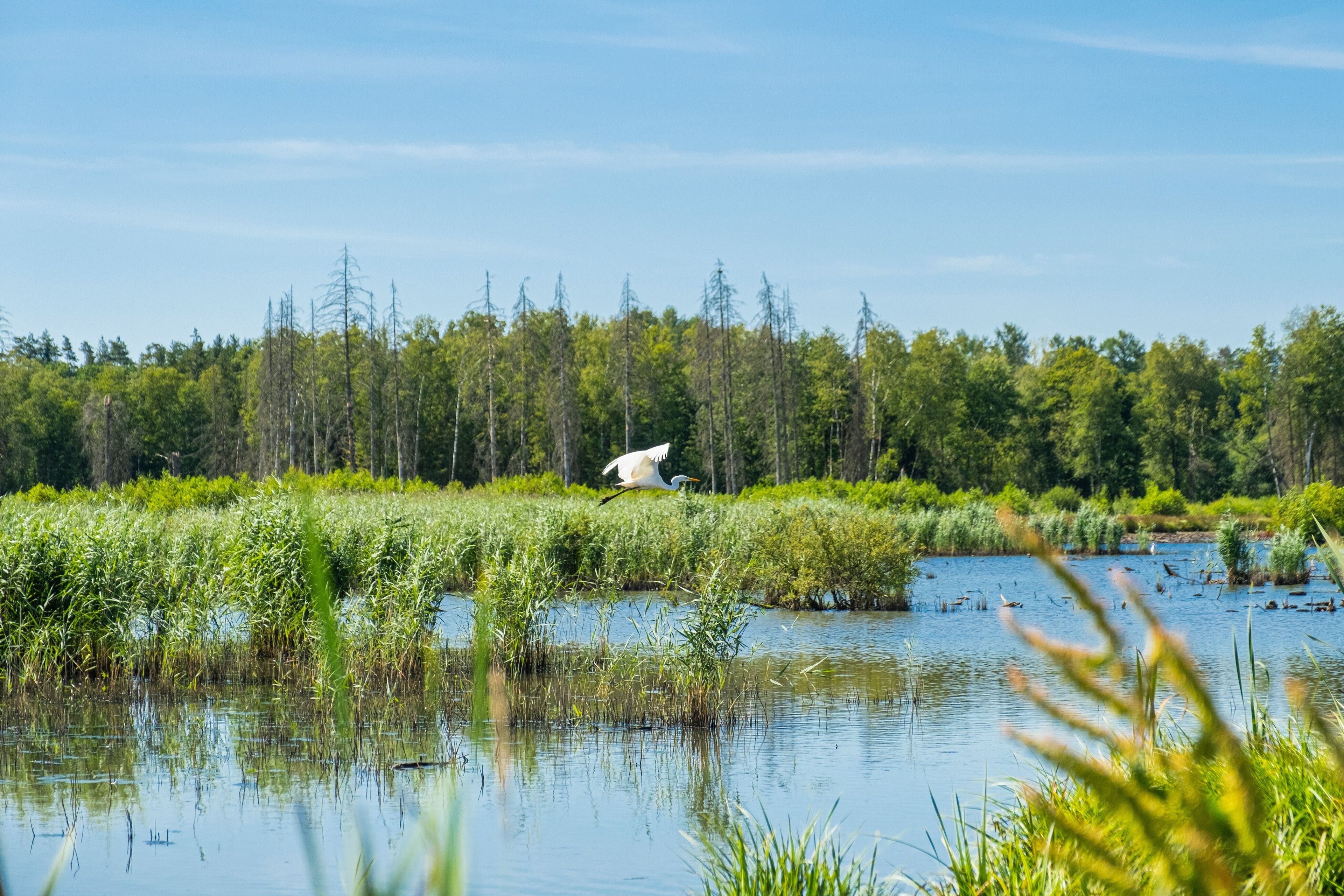Biodiversity declining even faster in 'protected areas', and other nature and climate stories you need to read this week

Top nature and climate news: Biodiversity under threat in protected areas; Global heating increasing air pollution deaths; and more.
Image: Unsplash/Bailey Zindel
- This weekly round-up contains the key nature and climate news from the past week.
- Top nature and climate news: Biodiversity under threat in protected areas; Global heating increasing air pollution deaths; The new 'age of electricity'.
1. Protecting land doesn't automatically result in better biodiversity outcomes
Over six billion people rely on the top 30% of land that provides the most vital ecosystem services, such as supplying fresh water or food.
But only 22% of the land delivering these services is protected and within this protected area, biodiversity is declining at a faster rate than in unprotected regions, according to a study by the Natural History Museum (NHM).
In 2022, as part of the Kunming-Montreal Global Biodiversity Framework, parties to the United Nations Convention on Biological Diversity set an ambitious "30 by 30" goal to conserve 30% of land and water by 2030.
Biodiversity intactness represents the proportion of the original number of species in an area that remain and their abundance. It is a key indicator of ecosystem health.
Since the current approach to implementing the 30 by 30 framework isn't meeting expectations, the NHM is calling for a fresh strategy to protect and manage critical land based on these three principles:
- Place more attention on conserving the land that delivers the most critical ecosystem services.
- Move beyond focusing on specific species or outcomes, instead implement a dynamic process where areas can be 'managed up' to a state of greater resilience.
- Strengthen capacity at national and international levels to monitor and model biodiversity change in a timely and thorough manner.
Accept our marketing cookies to access this content.
These cookies are currently disabled in your browser.
2. Global heating causing 12,000 extra deaths a year from wildfire smoke
Wildfire smoke may cause 12,000 extra deaths each year due to global heating, according to new research from Japan’s National Institute for Environmental Studies, published in Nature.
Between 2003-2019, global heating increased burned areas by 16%, but human land clearing for roads or agriculture reduced the total burned area by 19%.
Areas most affected by this increased risk include Australia, South America, Europe and parts of Asia.
Global heating's impact on wildfires varies by region, with either temperature or humidity driving fire risks.
Wildfire smoke contains harmful particles (PM2.5), penetrating the lungs and bloodstream, leading to health issues and, in extreme cases, death.
3. News in brief: Other top nature and climate stories this week
The International Advisory Panel on Biodiversity Credits (IAPB) launched its Framework for high integrity biodiversity credit markets, a tool laying the foundation for how biodiversity credits, a financing mechanism, can drive investment in the conservation and restoration of nature.
Fossil fuel demand will peak by the end of the decade, followed by a new age of electricity, the International Energy Agency predicts in its latest World Energy Outlook. In the second half of this decade, ample or surplus supplies of oil and natural gas could lead to lower prices, enabling countries to dedicate more resources to clean energy.
Polar bears face an increased risk of disease in a warming Arctic as a result of the climate crisis, according to new research published in the scientific journal PLOS One. The researchers compared blood samples taken between 1987 and 1994, to samples collected three decades later - between 2008 and 2017.
The Royal Horticultural Society (RHS) is urging the UK government to include requirements for gardens and tree planting in new housing developments as part of its upcoming regulatory plans. This will improve biodiversity and the health of the UK population, the RHS says.
Drought and heat are expected to reduce the size of Greece's 2024 chestnut harvest by around 50%, according to Reuters. Cherry, apple and walnut harvests have also been hit.
At its current pace, the Netherlands is set to miss its primary 2030 climate target, according to the government's climate policy adviser, PBL. Existing policies are projected to reduce emissions by only 44%-52% (compared to 1990 levels) by 2030, short of the 55% reduction goal.
UK birds of prey are under threat from rogue gamekeepers, with over 1,300 protected birds killed across the nation over the past 15 years, says the BBC.
What is the World Economic Forum doing about nature?
4. More on the nature and climate crisis on Agenda
Despite private financing rising to over $102 billion in 2023, a $700 billion annual gap remains to adequately fund nature. A new whitepaper from the World Economic Forum Nature Finance and Biodiversity Credits: A Private Sector Roadmap to Finance and Act on Nature explores how to close the gap using biodiversity credits, an emerging instrument with great potential to fund conservation and drive systemic change.
The ocean covers 70% of the planet, but 90% of its big fish populations are depleted while 50% of coral reefs are destroyed. With marine biodiversity at a tipping point, here's how technology can help to save it.
Conservation efforts, biodiversity restoration and sustainable tourism brought Rwanda's mountain gorilla populations back from the brink of extinction. It has been so successful that today there are more than 600 mountain gorillas, and they need more space. Learn more about this shining example of sustainable tourism.
Accept our marketing cookies to access this content.
These cookies are currently disabled in your browser.
More on Nature and BiodiversitySee all
Mark Gough and Naoko Ishii
September 15, 2025
Shivin Kohli and Alessandro Valentini
September 10, 2025
Kate Whiting
September 9, 2025





